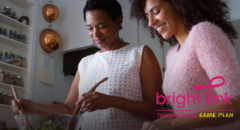
Studies indicated that centers gave older people inaccurate or uneven information, leading to unnecessary testing and health issues. Lung cancer screening is only suggested for high-risk patients, yet half of the cancer center webpages didn’t highlight possible hazards. Say a postcard comes with a mammogram reminder. Or a primary care doctor recommends a PSA test to check for prostate cancer or instructs him to be examined for lung cancer due to his smoking. Patients seeking to be educated may go online to a cancer center to learn about screening, when, and for whom.
The US Preventive Services Task Force and medical organizations issue guidelines on who should be checked for lung, prostate, and breast cancers and how often. Three studies published in JAMA Internal Medicine found that cancer center websites seldom follow these guidelines. Some sites mentioned the advantages of screening but not the hazards. Some recommend when to start screening, but not when to stop, which is essential for older people. Prostate-specific antigen testing, mammograms, colonoscopies, and CT scans are screening tests. Researchers evaluated more than 600 cancer center websites that advocated prostate screening and found that more than a quarter urged all males to be checked. More than 75 percent didn’t indicate an age to quit testing.
New Developments In Cancer Research
Cancer treatment has been altered due to research. The latest:
Uterine Cancer.
Cancer of the uterus is rising, particularly among Black women. This will become the third most prevalent form among women, and research suggests it’s more likely to hit Black women and be lethal.
Blood Testing.
New blood tests that check for small fragments of DNA or proteins to diagnose cancer have garnered President Biden’s support. Supporters claim the tests can discover cancers while they’re tiny and treatable, but conclusive research on whether they can reduce cancer deaths has yet to arrive.
RELATED: Top Health Concerns Impacting Black Men & Screening Guidelines
Melanoma.
Participants who ate a lot of fish each week had a higher risk of melanoma, the most dangerous skin cancer. The surprising link between fish consumption and melanoma isn’t apparent, and the study’s principal author advised against removing fish from a balanced diet.
Rectal Cancer.
A tiny study of 18 rectal cancer patients using dostarlimab yielded a remarkable result: the cancer disappeared in every participant, invisible by physical exam, endoscopy, PET scans, or MRI scans. Experts say it’s the first time research has resulted in full remission in every cancer patient.
Breast Cancer.
Trastuzumab deruxtecan, a medication that targets cancer cells with laser-like precision, slowed tumor development and extended life in metastatic breast cancer study participants. In a review of over 600 breast cancer facilities, 80 percent of those suggesting screening mammograms were at odds with recommendations. The polls revealed comparable issues on web pages about different cancer checks. The research didn’t examine whether websites said when to quit.
Preventive Services Task Force 2016 recommends screening mammograms every other year for women 50 to 74; it found inadequate evidence of benefits and dangers for those 75 and older. As long as they have a 10-year life expectancy, the American Cancer Society advises yearly or biannual screening for women over 55 at average risk. Over 80 percent of breast cancer facilities that recommended a beginning age for mammograms went against recommendations.

Weight Loss.
Recent research revealed that those who lost a lot of weight via bariatric surgery had a 32 percent reduced chance of acquiring cancer and a 48 percent lower risk of dying. According to the research, cancer risk dropped with weight loss.
Concerns About Overtesting
Overtesting and overtreating cancer in older people has been a concern for years. Dr. Mara Schonberg, an internist and researcher at Beth Israel Deaconess Medical Center in Boston, says screening has early consequences. But screening advantages may accrue years later; elderly individuals with chronic health issues may not survive long enough to enjoy them. According to Dr. Schonberg’s study, in mammography, false positives may lead to repeat mammograms or biopsies, which can have psychological repercussions for months.
While most breast cancers in women over 70 are low risk and may never grow, “almost all” are treated with surgery, radiation, and endocrine medications, which may have serious side effects. To avoid one breast cancer death, 1,000 women aged 50 to 74 would need to have mammography for 11 years. Why do some cancer center webpages exclude false positives, repeat tests, radiation exposure, or surgical side effects? Why not indicate how many lives screens save at certain ages?
It might be awkward to discuss aging, health, and death. Screening decisions entail life expectancy, which some elderly patients (and physicians) avoid. The American Cancer Society and certain medical organizations consider life expectancy, not age, to determine when older people should quit screening. “Prognosis is crucial to decision-making,” Dr. Smith states. Are patients going to survive long enough to reap the benefits?
In the US healthcare system, the more operations you perform, the more you are compensated, says Dr. Alexander Smith of UCSF. Radiology, essential for lung and breast examinations, is a key moneymaker for health organizations. Dr. Jonas says some websites might have been created without health experts’ participation. Patients may not click “Make an Appointment” if dangers are discussed. It’s hard to discourage elderly folks from screening, even when data reveals no benefit.
RELATED: Five Things You Must Know About Ovarian Cancer Screenings
What Can We Do?
Advocate for yourself and do your research. In many cases, this will help you take better care of yourself. Screening differs from traditional treatment in another important way. Unlike patients with specific problems, who must give informed consent to treatment, healthy patients are often pressured to undergo screening. They are rarely provided with the knowledge needed to make an informed decision. Find a doctor who gives you great information and doesn’t just tell you anything.









